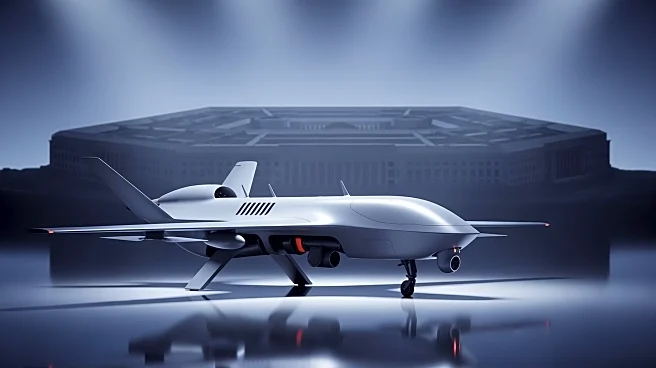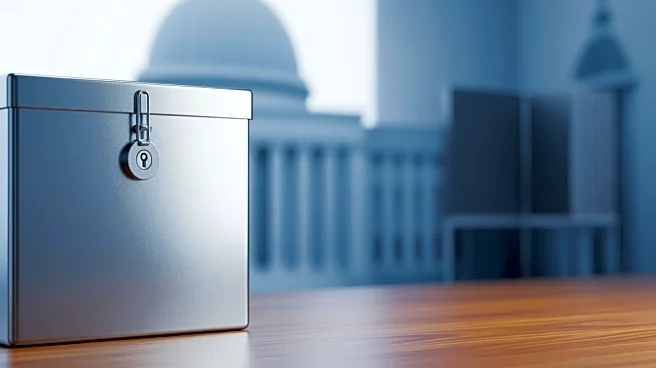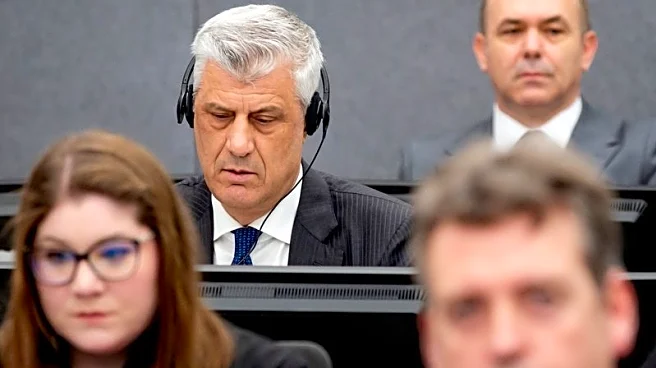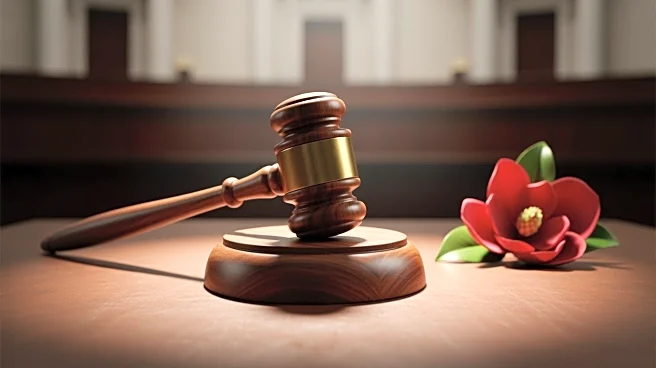What's Happening?
The ownership of military inventions is under scrutiny due to overlapping frameworks of military rules and federal patent law. The government often claims ownership or a free license to inventions made by service members during duty. The Invention Secrecy
Act of 1951 allows the imposition of secrecy orders on patent applications crucial to national security, affecting over 5,000 applications annually. This can prevent inventors from disclosing or profiting from their work. Military inventors may see their innovations used in classified programs without recognition or compensation. The issue has gained attention as the Pentagon focuses on emerging technologies like artificial intelligence and cyber tools, where service members contribute significant expertise. Proposals in Congress suggest establishing a uniform inventor recognition program and requiring transparency on secrecy orders affecting service member inventions.
Why It's Important?
The debate over military invention ownership has significant implications for innovation within the armed forces. Recognizing and compensating inventors could foster a culture of creativity and problem-solving among service members. Without adequate recognition, the military risks losing valuable ideas, especially as global rivals like China invest heavily in defense innovation. The current system may discourage service members from sharing their ideas, potentially hindering technological advancements crucial for national security. Reforming the system to provide recognition and transparency could enhance military readiness and ensure that innovative solutions developed by service members are utilized effectively.
What's Next?
Congress is considering proposals to reform the recognition and ownership of military inventions. These include establishing a formal recognition program for troop inventors and increasing transparency regarding secrecy orders. Lawmakers are evaluating whether current rules discourage innovation and if changes could incentivize service members to contribute their ideas. The outcome of these discussions could lead to significant policy changes, impacting how military inventions are managed and recognized. The decision will influence whether the military can continue to benefit from the ingenuity of its personnel and maintain a competitive edge in defense technology.
Beyond the Headlines
The ethical and legal dimensions of military invention ownership raise questions about intellectual property rights and the balance between national security and individual recognition. The current system may be seen as unfair to inventors who contribute to national defense without acknowledgment. Addressing these issues could lead to a cultural shift within the military, promoting a more open and innovative environment. Long-term, these changes could impact how the military collaborates with private sector innovators and adapts to technological advancements.

















